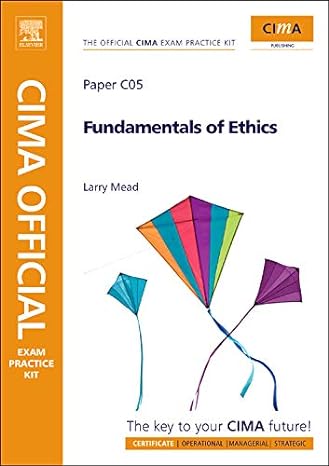Question
In October 2011, The Ohio State University sold $500 million worth of 100-year bonds, becoming the first public university to issue a so-called century bond.
In October 2011, The Ohio State University sold $500 million worth of 100-year bonds, becoming the first public university to issue a so-called century bond. The bonds were priced to yield 4.849%, which was 1.70 percentage points over 30-year Treasury rates. Ohio State was established in 1870, has 64,077 enrolled students, and has a campus of more than 1,700 acres with 457 buildings. Two private universities, Massachusetts Institute of Technology (MIT) and the University of Southern California, had issued century bonds earlier that year. Typically, universities such as Ohio State issue 30-year tax-free bonds with fixed or floating interest rates. Public and private universities are tax-exempt institutions, but the income from century bonds is taxable to the buyer.
What are the likely economic advantages to Ohio State of issuing century bonds?
Why would the Treasury Department and members of Congress be opposed to unlimited interest deductions on century and millennium bonds?
According to U.S. GAAP, are these securities debt or equity?
Step by Step Solution
There are 3 Steps involved in it
Step: 1

Get Instant Access to Expert-Tailored Solutions
See step-by-step solutions with expert insights and AI powered tools for academic success
Step: 2

Step: 3

Ace Your Homework with AI
Get the answers you need in no time with our AI-driven, step-by-step assistance
Get Started


